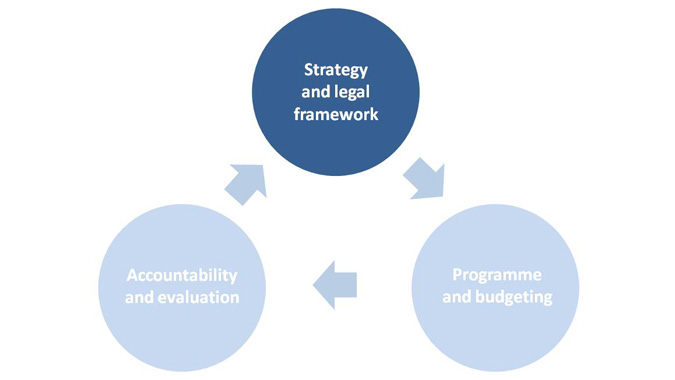Strategy and legal framework

ECLAC uses an annual system (on a trial basis) of strategic planning, which is based fundamentally on the Programme of work. In this document, the member States determine the programme structure and set priorities for each year, as well as establishing the legislative basis that underpins the institution's mandate, particularly the body of intergovernmental decisions and resolutions that are periodically issued by the United Nations General Assembly, the Economic and Social Council (to which ECLAC is directly accountable) and the member States at the session of the Commission or the Committee of the Whole.
As well as providing ECLAC with policy guideline, the program of work is the first step in the programme planning cycle and is used as the basis for the planning, annual budgeting, monitoring and evaluation. The program of work sets out the vision of the United Nations and of ECLAC within the United Nations system, and states the objectives, strategies and working modalities.
The document sets out, for each subprogramme, clear objectives, thematic analysis, strategy and activities. Lastly, a list of the most important resolutions and decisions adopted by the General Assembly, the Economic and Social Council and the Session of the Commission or the Committee of the Whole of ECLAC is also included.
The draft programme of work is submitted for consultation prior to the session of ECLAC (or the Committee of the Whole in alternate years), which serves as the Commission's governing body.
The preparation of the draft programme of work, begins two years ahead of the corresponding year. To diminish the impact of this time lag when it comes to implementation, ECLAC typically holds six-monthly strategic planning rounds attended by the Office of the Executive Secretary and the senior technical staff of the ECLAC bodies responsible for each subprogramme (currently 13 subprogrammes). The Commission thus aims to regularly update agreed priorities, adjust the programme commitments, and forge agreements in relation to specific methods of programme implementation.